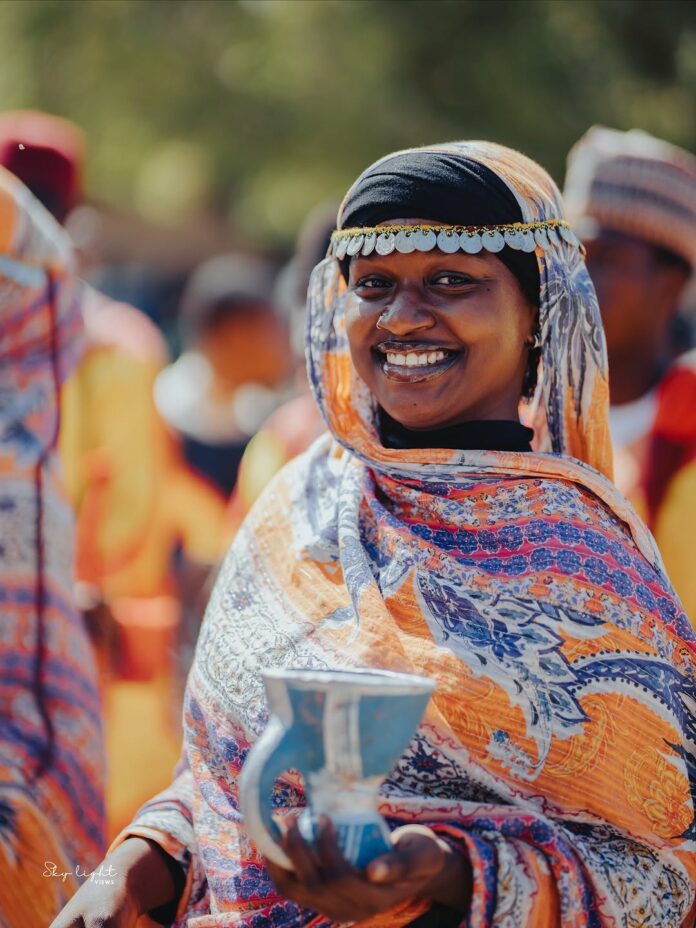By: Abdullahi Inuwa
The Kanuri, an ancient and resilient people, stand as one of the most historically significant ethnic groups in Nigeria’s northeastern region. Dominating Borno Province and extending their influence across neighboring countries, the Kanuri population today is estimated at over 3 million in Nigeria, 500,000 in Niger, 100,000 in Chad, and around 60,000 in Cameroon. Despite colonial borders dividing them, their language, culture, and shared heritage have continued to bind them together through centuries of political and social change.
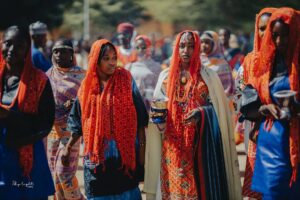
Known by the Hausa as “Beri-beri,” the Kanuri trace their origins to one of Africa’s oldest and most enduring civilizations — the Kanem-Bornu Empire. Founded around the 9th century near Lake Chad, Kanem-Bornu rose to prominence as a powerful empire that shaped the political, religious, and economic life of the Sahel for nearly a millennium. From its capital in Njimi (in present-day Chad) and later in Ngazargamu (in present-day Borno), the empire became a center of Islamic scholarship, trade, and governance long before European colonialism reached African shores.
The Kanuri are renowned for their deep-rooted Islamic faith. Islam entered the region as early as the 11th century through trans-Saharan trade routes linking North Africa to the Lake Chad basin. The empire’s rulers, particularly the Sayfawa dynasty, were early adopters of Islam and played a key role in spreading the faith throughout the region. They established Islamic schools, promoted Arabic literacy, and integrated Islamic law into governance — centuries before such systems took hold elsewhere in West Africa.
The most celebrated ruler of the Kanem-Bornu Empire was Mai Idris Alooma (reigned 1571–1603), a visionary leader remembered for his military brilliance, administrative reforms, and commitment to Islam. Under his leadership, Bornu became a beacon of prosperity and stability. Alooma strengthened trade ties with North Africa, built mosques, and introduced innovations such as brick architecture and advanced irrigation systems. His reign marked the golden age of Kanuri civilization, the echoes of which still resonate in the culture and traditions of the people today.
To this day, the Kanuri remain the cultural backbone of Borno State. Their language, Kanuri, serves as a unifying medium across communities, and their social structure reflects centuries of organized governance and respect for hierarchy. The traditional leadership of the Shehu of Borno, whose palace stands in Maiduguri, continues to be a symbol of authority, dignity, and cultural preservation.
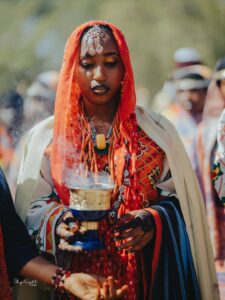
Kanuri culture is rich with expressions of artistry, music, and storytelling. Traditional attire — often flowing robes called babban riga for men and elegantly embroidered garments for women — reflects both Islamic modesty and cultural pride. Festivals such as Eid celebrations are marked by elaborate horse parades known as Durbar, showcasing the regal heritage of Borno’s warrior past.
Food is another essential aspect of Kanuri identity. Staple dishes like fura, tuwo, and miya kuka (baobab leaf soup) are deeply rooted in their agrarian lifestyle and connection to the Lake Chad basin. Hospitality is a defining feature; visitors are welcomed warmly, often with milk or sweetened tea — a reflection of their desert heritage and communal values.
In the modern era, the Kanuri people have faced numerous challenges, especially in the wake of the Boko Haram insurgency that has gripped Borno and parts of the Lake Chad region for over a decade. The conflict has displaced millions and tested the resilience of communities that have lived in harmony for centuries. Yet, true to their heritage, the Kanuri people have remained steadfast.
Local leaders, civil society groups, and youth organizations — many rooted in Kanuri traditions of collective responsibility — have been at the forefront of rebuilding trust and fostering peace. In Maiduguri, for instance, initiatives focusing on education, vocational training, and interfaith dialogue have drawn from Kanuri values of patience (hakuri), endurance (juriya), and wisdom (hikima).
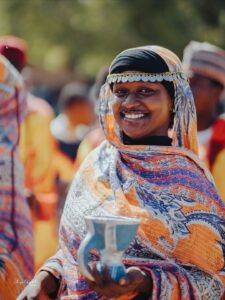
The younger generation of Kanuri scholars and professionals continues to draw inspiration from their people’s glorious past. Institutions such as the University of Maiduguri have become hubs for research on Kanem-Bornu history, archaeology, and language preservation. Across the BUK community and beyond, students from Borno proudly uphold their heritage, blending modern education with traditional values of respect and service.
What makes the Kanuri truly remarkable is their transnational identity. Colonial demarcations in the late 19th century split their ancestral lands among four modern states — Nigeria, Niger, Chad, and Cameroon. Yet, these borders have not severed the deep cultural and familial ties that bind Kanuri communities. Cross-border marriages, trade, and shared religious institutions continue to sustain a sense of unity.
In Niger, Kanuri settlements thrive in the Diffa region; in Chad, they remain active around Lake Chad; and in Cameroon, they inhabit pockets of the Far North. Across these regions, they maintain their language and customs, serving as a bridge among the countries of the Lake Chad basin.
The story of the Kanuri is one of endurance, dignity, and pride. From the ancient corridors of Kanem-Bornu to the modern streets of Maiduguri, the Kanuri spirit has endured — adapting to change without losing its essence. Their contributions to religion, governance, education, and trade have left indelible marks on African history.
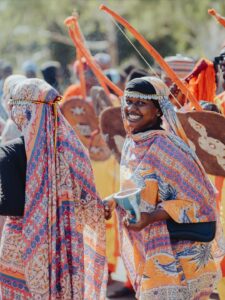
As Borno continues to rebuild and reposition itself for peace and development, the Kanuri remain central to that vision — a people deeply rooted in history, yet determined to embrace the future.
For BUK Campus Connect, the story of the Kanuri is not just about ancestry; it is a testament to the enduring power of identity, resilience, and faith — values that continue to light the path for generations across the Lake Chad basin and beyond.
Abdullahi Inuwa Social Commentator ainuwa303@gmail.com


